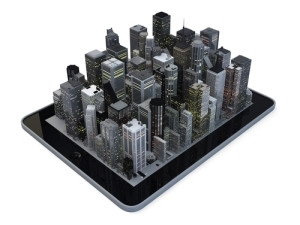
If SA is to make headway in smart city progression, issues like perception gaps, corruption, and bureaucracy must be cleared first.
This is the view shared by local industry players after the International Telecommunication Union (ITU), in partnership with the International Electrotechnical Commission (IEC) and International Organisation for Standardisation (ISO), launched the first World Smart City online community to assist city stakeholders in their efforts to develop smart sustainable cities.
The community aims to provide international standards to help achieve smart city ambitions.
According to Transparency International, SA, just as most of its African peers, is one of the most corrupt countries in the world.
While SA has several plans to make cities smart over the next few decades, few cities' plans have managed to get off the ground and progress is slow.
Several cities have plans to become smart, including the City of Cape Town with its five-year strategy, while the City of Johannesburg aims to be smart by 2040, with the City of Tshwane following 15 years later. However, these plans are often beset by challenges in understanding exactly what is needed, and then developing a successful implementation roadmap.
"SA is obviously still in infancy stages, so there is not much to compare just yet, but we are moving in the right direction," says Hendrik Malan, operations director for Africa at Frost & Sullivan.
"Africa already has quite a few smart city projects, but South Africa should use its advanced commercial operating environment to lead the way. Large corporates like IBM establishing local innovation centres is brilliant and should be supported and marketed effectively."
Describing the biggest pain points SA faces in regards to smart city development, Malan says: "A number of basic challenges that are typically associated with infrastructure development come to mind; for example financing, corruption, and bureaucracy.
However, he notes, challenges specifically related to smart cities include bridging the perception gap by ultimately getting people and organisations to buy into the fact that the continent can be a technology leader.
"Africa is already a leader in technology application, with a number of interesting business models that have been developed to adapt to the local operating environment. This now needs to be extended by way of innovating 'in Africa for Africa'."
"The development of smart sustainable cities has become a key policy point to administrations around the world as well as to UN organisations," says ITU secretary-general Houlin Zhao.
"The recognition of the potential of smart cities comes in parallel with recognition that building smartness into an existing city, or developing a smart city from the ground up, is a complex undertaking, calling for improved co-operation and more integrated decision-making by a variety of city stakeholders and global standards bodies, such as ITU, IEC and ISO."
By year 2050, the ITU believes an estimated 66% of the world's population will live in urban areas. It points out that city leaders face a major challenge in the need to supply these populations with basic resources, such as safe food, clean water and sufficient energy, while ensuring overall economic, social and environmental sustainability. Cities need to achieve substantial improvements in the efficiency with which they operate and use their resources.
Mark Warren, machine-to-machine solutions manager for Africa at Gemalto, says the underlying principles of a smart city are to facilitate connections between consumers and users to public systems and government entities, and between machines by delivering an ecosystem over which innovation and creativity can thrive.
"By this rationale, the base requirement for a smart city ecosystem is connectivity, without which, services cannot be delivered. This is why mobile network operators have a pivotal role to play to bring connectivity and deliver on the promises of smart cities in South Africa and all around the world," says Warren.
Paul Divall, MD of intelligent technologies at Jasco Group, says the challenge in SA is not the technology, but finding the right way to implement it and integrate with the right partner and to ensure citizens realise and understand the benefits it provides.
Share